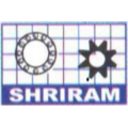Understanding Paddy Dryer Machine Prices and Considerations
In the realm of agricultural processing, the paddy dryer machine plays a pivotal role in ensuring the quality and longevity of rice, a staple food for over half the world's population. The price of paddy dryer machines varies widely, influenced by several factors ranging from capacity and technology to energy efficiency and brand reputation. This blog provides insights into these factors and offers guidance on making cost-effective choices when investing in a paddy dryer machine.
Key Factors Influencing Paddy Dryer Machine Prices
1. Capacity and Size: The capacity of a paddy dryer machine significantly affects its price. Larger machines, capable of processing thousands of kilograms of paddy per cycle, cost more due to their size, materials, and the technology required to efficiently dry large volumes of paddy without compromising quality.
Image suggestion: A side-by-side comparison of small and large paddy dryer machines.
2. Technology and Features: Advanced features such as automated moisture control, temperature regulation, and programmable settings can increase a machine's price. However, they also offer greater efficiency and better quality output, which can be cost-effective in the long run.
Image suggestion: Close-up shots of a paddy dryer's control panel and automated systems.
3. Energy Efficiency: Machines designed with energy efficiency in mind may carry a higher upfront cost but can lead to significant savings on operational costs. Energy-efficient dryers use less fuel or electricity to process the same amount of paddy, reducing the overall environmental footprint.
Image suggestion: An infographic comparing the energy consumption of traditional vs. energy-efficient paddy dryer machines.
4. Brand and Manufacturer Reputation: Established brands with a proven track record of reliability and after-sales support often command higher prices. Investing in equipment from reputable manufacturers can ensure longevity, reliability, and access to spare parts and service, which can be more cost-effective over the machine's lifespan.
Image suggestion: Logos of several leading paddy dryer manufacturers.
5. Material and Build Quality: The materials used in construction, such as stainless steel versus other metals, affect both the durability and cost of paddy dryer machines. High-quality materials resist corrosion and wear, extending the machine's usable life and reducing the need for frequent repairs or replacement.
Image suggestion: Detailed shots highlighting the material quality of different parts of a paddy dryer.
Making Cost-Effective Choices
1. Assess Your Needs: Evaluate your operation's size, the volume of paddy to be processed, and your specific requirements to avoid overpaying for unnecessary capacity or features.
2. Consider Total Cost of Ownership: Look beyond the initial purchase price to include maintenance, repair, and operational costs over the machine's expected life. Energy-efficient and durable models might offer better value in the long run.
3. Explore Financing and Subsidies: Some manufacturers offer financing options that can spread the cost over time. Additionally, government or agricultural programs may offer subsidies for energy-efficient or technologically advanced equipment.
4. Research and Compare: Spend time researching different models and manufacturers. Compare specifications, prices, and reviews from other users to find the best match for your needs and budget.
5. Prioritize After-Sales Support: Choose manufacturers or suppliers who offer robust after-sales support, including access to technicians, spare parts, and warranties. This support can be invaluable in ensuring the machine's longevity and operational efficiency.
Conclusion
Investing in a paddy dryer machine is a significant decision for any rice processing operation. By understanding the factors that influence machine prices and making informed choices, you can ensure that your investment is both cost-effective and beneficial to your operation's long-term success. The right paddy dryer not only improves the quality and shelf life of the rice but also enhances operational efficiency, contributing to greater profitability and sustainability in the competitive agricultural market.

